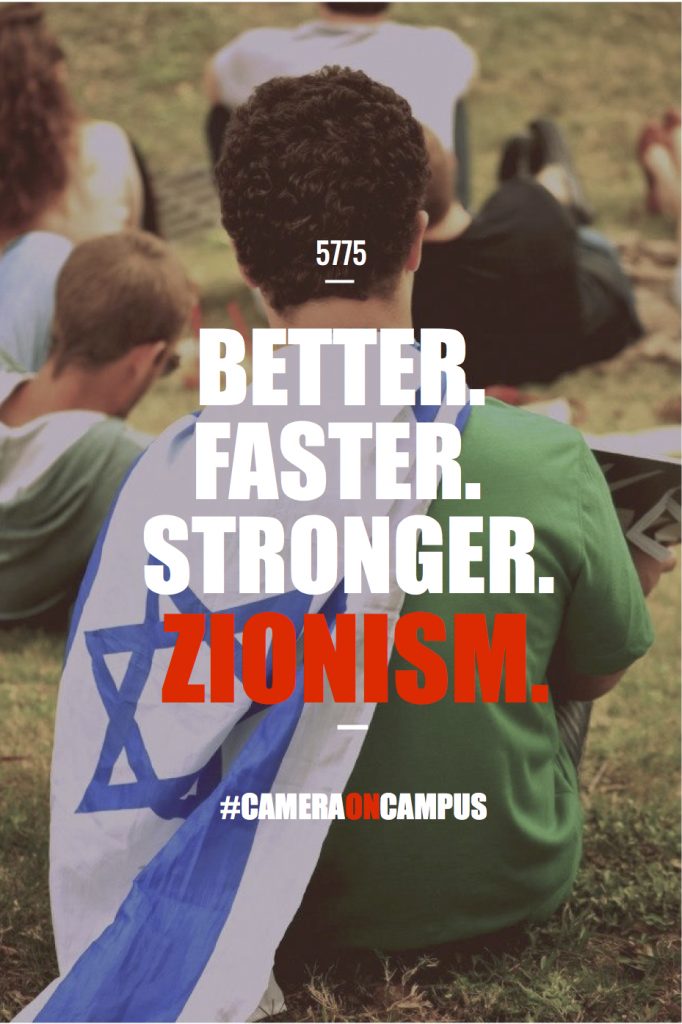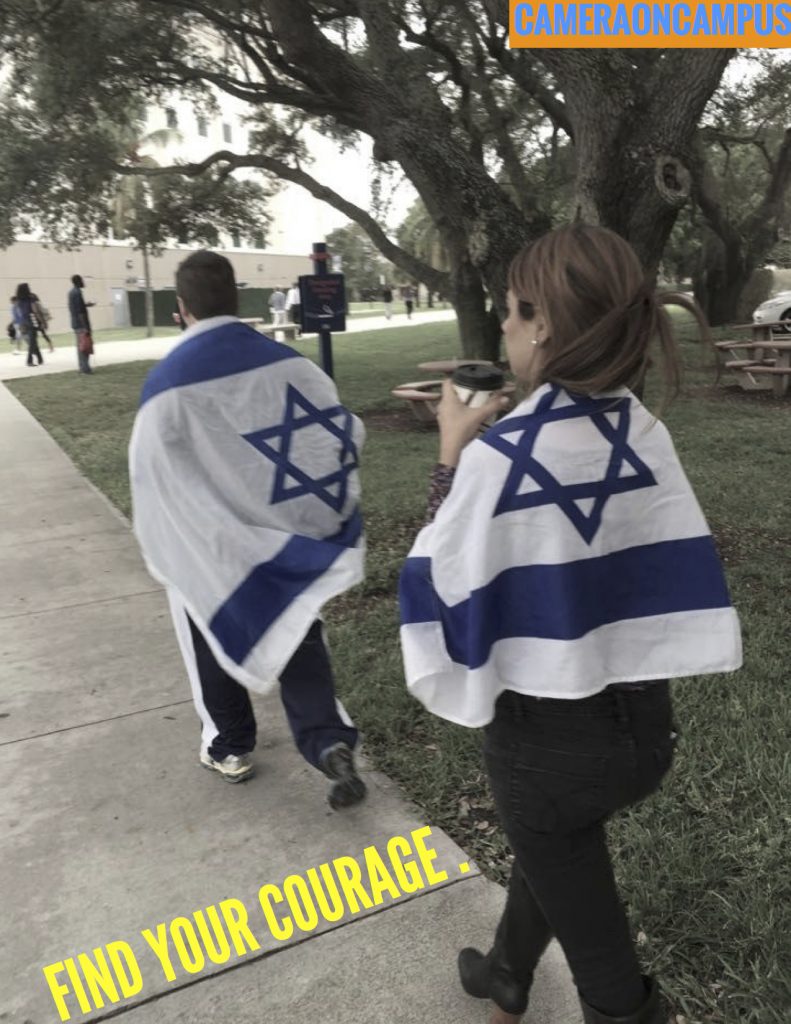 What exactly is Zionism? Zionism is an ideology that originated in the late 1800’s that brought nationalism to the Jewish people. It argued for a Jewish state, united world Jewry, hoping to bring to an end anti-Semitism and the persecution of the Jewish people. Zionism is how I connect to my Judaism and it is being slandered as a racist ideology that supports apartheid and oppression across college campuses by anti-Israel and anti-Semitic hate groups like Students for Justice in Palestine (SJP). It is a new way to insult Jewish people without directly coming off as anti-Semitic.
What exactly is Zionism? Zionism is an ideology that originated in the late 1800’s that brought nationalism to the Jewish people. It argued for a Jewish state, united world Jewry, hoping to bring to an end anti-Semitism and the persecution of the Jewish people. Zionism is how I connect to my Judaism and it is being slandered as a racist ideology that supports apartheid and oppression across college campuses by anti-Israel and anti-Semitic hate groups like Students for Justice in Palestine (SJP). It is a new way to insult Jewish people without directly coming off as anti-Semitic.
Growing up, I’ve never been really religious. The way I connect to my Judaism was through the Jewish people, holidays and culture, and Israel. When I talk about my Judaism, I always give the same spiel about my entire mother’s side of the family active involvement with the Jewish American world and Israel. Israel is a focal point for my Judaism. I currently have family in Haifa and I’ve had family in Israel since the mid-1800s. I value Zionism and it has been a part of my identity since I’ve been aware about being Jewish and my Israeli roots. I advocate for nationalism of the Jewish people, a group that has been victims of persecution and racism for thousands of years, and for a Jewish democratic state. I value human rights and freedoms for all and that’s why I support Israel.
This past November, the CUNY SJP blamed “the Zionists” for the high college tuition hikes. Clearly, the Israeli-Palestinian conflict has nothing to do with the price of CUNY Schools’ tuition. SJP is using a common anti-Semitic stereotype that Jews are cheap and to blame for the high costs and are using the word “Zionists” instead of “Jews” to hide their true feelings and intentions.
 In March of 2015, a Jewish pro-Israel student, Rachel Beyda, faced anti-Semitism by her student government. She was initially rejected from the Student Council’s Judicial Board for being Jewish and a member of Hillel. They questioned how her being Jewish would let her maintain an unbiased view. Only she was a target. No other student of faith or color has been asked this question, despite that other members of student government were members of the Muslim Student Association and Students for Justice in Palestine. The student government board members who questioned Beyda were assuming that if elected she would be a strong opponent of Boycott, Divestment, and Sanctions Movement (BDS) to boycott Israel. Why would this matter to them? These same students who didn’t want to share a board with a potential supporter of Israel were supporters of the BDS movement.
In March of 2015, a Jewish pro-Israel student, Rachel Beyda, faced anti-Semitism by her student government. She was initially rejected from the Student Council’s Judicial Board for being Jewish and a member of Hillel. They questioned how her being Jewish would let her maintain an unbiased view. Only she was a target. No other student of faith or color has been asked this question, despite that other members of student government were members of the Muslim Student Association and Students for Justice in Palestine. The student government board members who questioned Beyda were assuming that if elected she would be a strong opponent of Boycott, Divestment, and Sanctions Movement (BDS) to boycott Israel. Why would this matter to them? These same students who didn’t want to share a board with a potential supporter of Israel were supporters of the BDS movement.
Another similar, but more recent incident occurred this past November, at the University of California, Santa Cruz (UCSC). A Jewish member of the UCSC student government was warned to abstain from the voting on a BDS resolution because of his pre-assumed bias based on his election by the “Jewish Agenda.” Again, this student was the only one singled out based on his nationality/religion. Both of these students faced discrimination from their student governments for simply being Jewish.
These above examples clearly demonstrate that SJP is not an organization that is critical of Israel or even opposes the political movement of Zionism. It is a hate group that specifically targets Jews. Now that is clear, our universities must ensure that members of these hate groups are not taking over the governments that are supposed to be represent the values of our student body.
Being a Zionist, I support the Black Lives Matter, Women’s Rights, the LGBTQ movement plus many more. What I don’t support is racism, discrimination, or anti-Semitism; these bigoted ideals that are perpetrated by Students for Justice in Palestine.

This was contributed by Andrew Meyer, CAMERA Fellow and secretary for UB for Israel, Emet for Israel supported organization at SUNY Buffalo.

